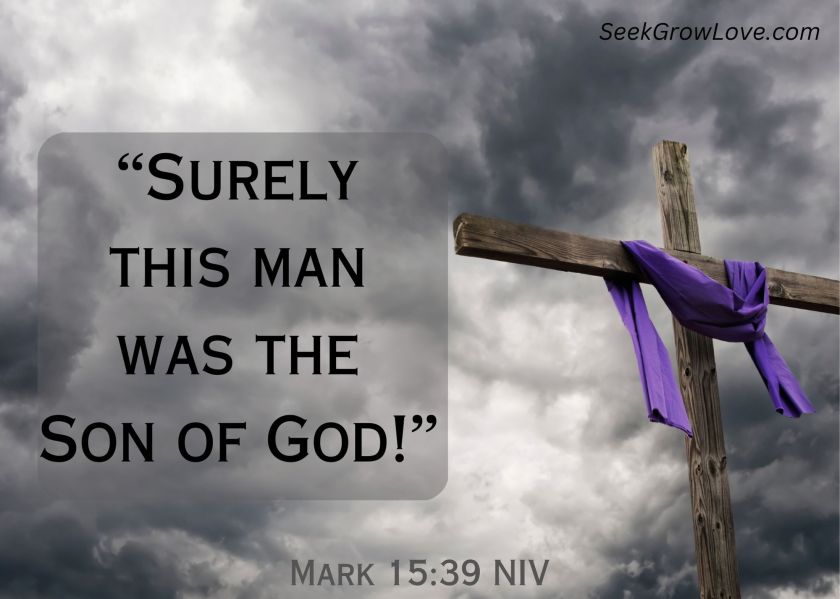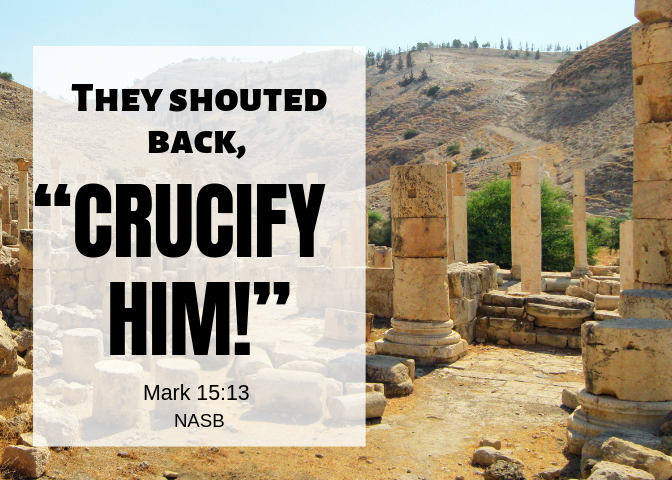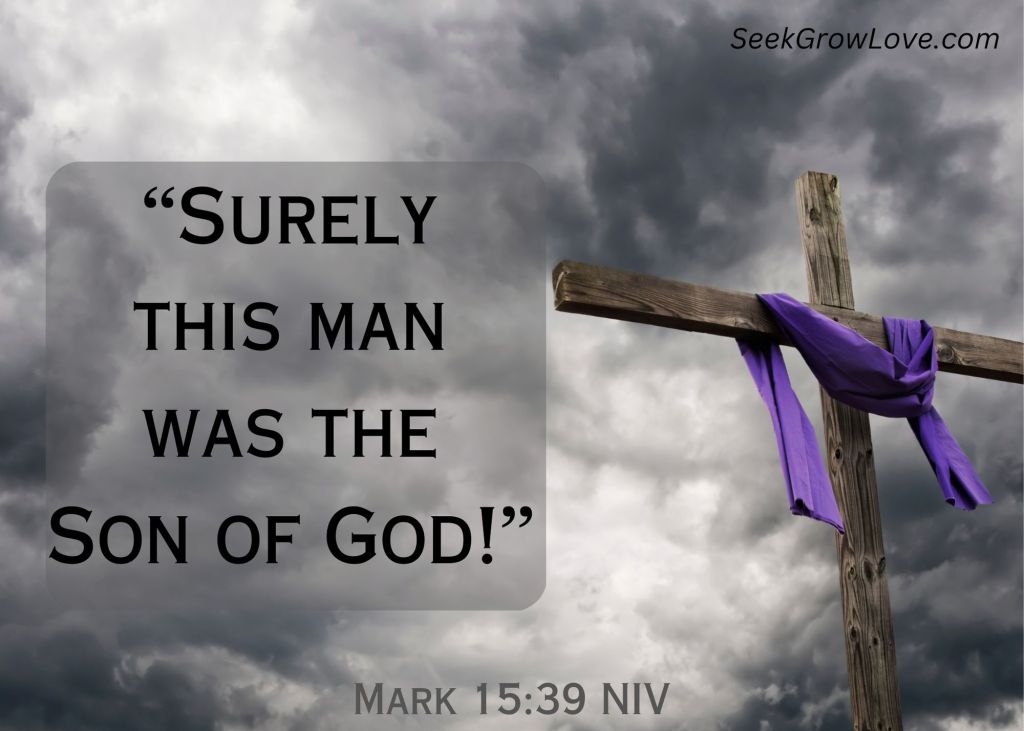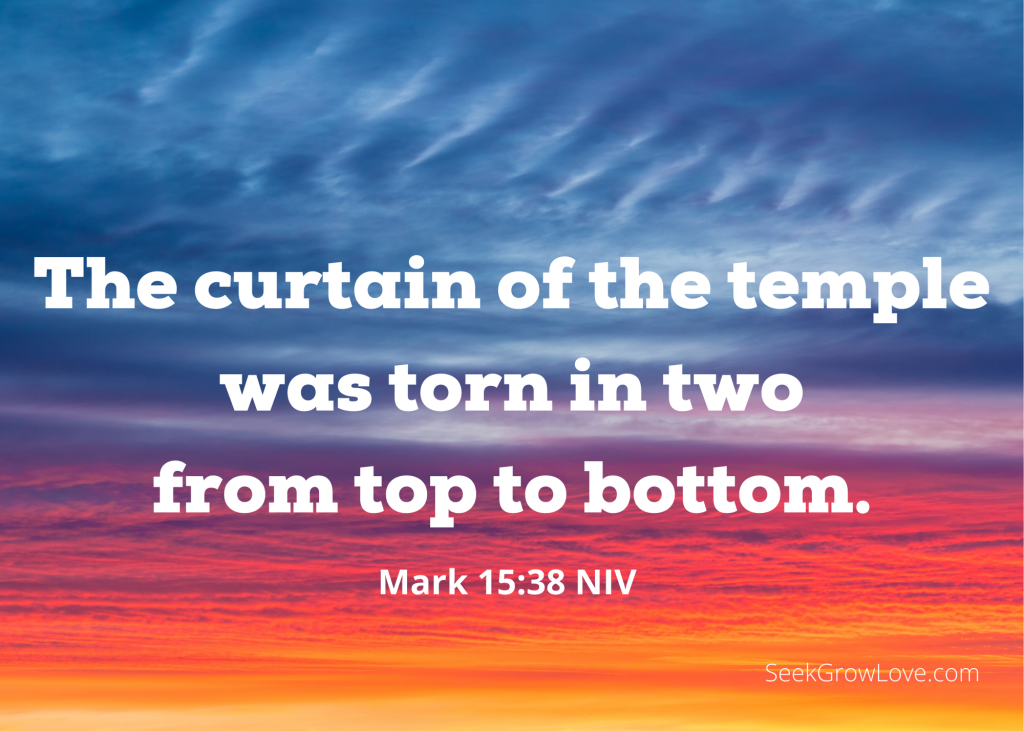
Old Testament: Deuteronomy 7 & 8
Poetry: Job 31
New Testament: Mark 15 – again
In Jesus’ time, crucifixion was reserved for the worst of criminals. The torture a person endured on a cross would last for hours, and killing Jesus in this manner likely appealed to the religious leaders who hated Him so deeply. In an effort to hide their move against Jesus from His many supporters, the Jewish leaders arrested and tried Jesus in the middle of the night. When Jesus was brought before Pontius Pilate—the only one with authority to order a crucifixion—it was still early in the morning (Matthew 27:1–2). When Pilate presented Jesus and Barabbas to the people, the chief priests whipped the crowd into a frenzy, encouraging them to call for Barabbas’s release (Mark 15:11). When Pilate asked what they wanted done to Jesus, the crowd, again influenced by the chief priests, shouted, “Crucify Him!” Pilate, the people-pleaser, gave them what they demanded. He had Jesus flogged and then turned Him over for crucifixion. After the scourging, the entire battalion of soldiers gathered around this faint and bleeding man, put a scarlet robe on him, pressed the weight of a scarlet robe onto his torn shoulders, set a reed in his right hand, knelt down before him, and mocked him, “Hail, King of the Jews.” They struck him with their hands. They spit on him. They wove a crown out of thorns—probably not the kind of thorns you see on rose bushes, but the longer kind that are more like needles. Then they not only put the crown on his head, but hit him over the head—to drive the thorns into his skull (Mark 15:17-19).
At the beginning of the week, there was a crowd in Jerusalem celebrating Jesus as the Messiah; by Friday, there was a crowd crying, “Crucify Him!” The incredible change of the people naturally causes some confusion. It’s good to remember that not everyone at the Triumphal Entry was celebrating Jesus. Most of the city was puzzled: “When Jesus entered Jerusalem, the whole city was stirred and asked, ‘Who is this?’” (Matthew 21:10), and the Jewish leaders were resentful (verse 15). Some of the same crowd who shouted, “Hosanna!” may also have been part of the crowd shouting “Crucify Him!” but we can’t be sure. If some people did join both crowds, it may be because they had grown disillusioned with Jesus when they discovered he was not going to set up the kingdom immediately—or perhaps they disliked Jesus’ insistence that they repent. Also, it’s quite possible that the crowd gathered before Pilate at that early hour had been assembled secretly to do an unlawful thing by the Jewish leaders.
In the end, it wasn’t the crowd’s cries of “Crucify Him!” that put Jesus on the cross. Our sin did that. From the very beginning, when Adam and Eve disobeyed God, the Lord had promised to send a Savior who would crush the reign of sin and death (Genesis 3:15). Throughout the ages God worked His plan to send a Savior, and that plan culminated in Jesus Christ: God’s own Son who became the perfect offering so he could take upon himself the punishment for sin. Although wicked men were involved in Jesus’ death on the cross, His sacrifice was ultimately the will of God (Isaiah 53:10; John 10:18). The shedding of Jesus’ blood fulfilled God’s promise to mankind to provide a Savior and sealed the New Covenant (Luke 22:20). Jesus would then defeat the power of death and the grave by rising again three days later and ascending to His Father’s right hand in heaven.
Do you feel the heaviness of his death? Do you understand that he died for you so you may have a chance at a new life? My hope and prayer for you this morning is that you have accepted Jesus Christ as your Lord and Savior. That because of his death you live for him. Your sin killed Jesus. But his righteousness saves you. May that truth motivate you and give you peace of mind knowing that God loves you so much that he gave his son to die for you. What will you do with this information?
-Andy Cisneros
Reflection Questions
- Do you feel the heaviness of his death? Do you understand that he died for you so you may have a chance at a new life?
- Have you accepted Jesus as your Savior?
- What questions do you have for God? What praise and thanks to Him and His Son? Spend some time in prayer today.



